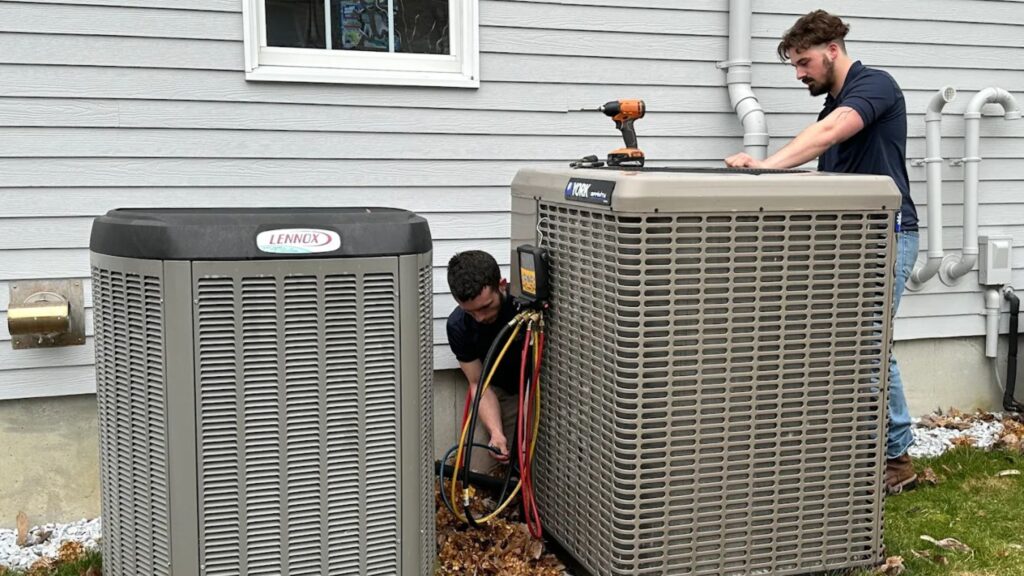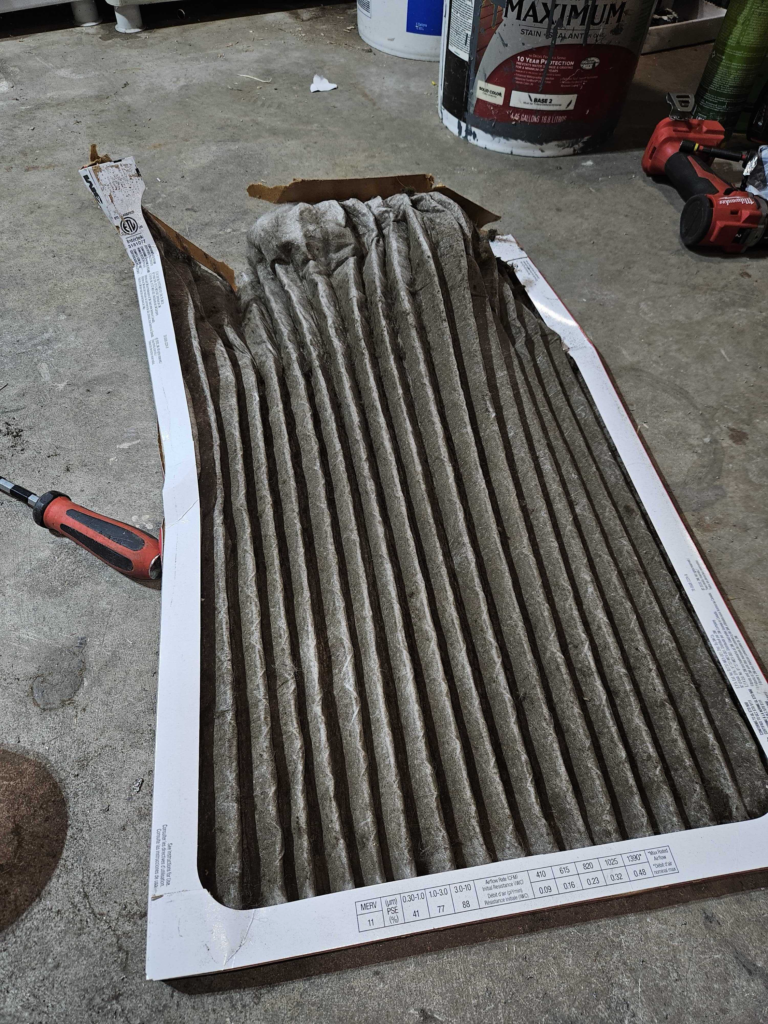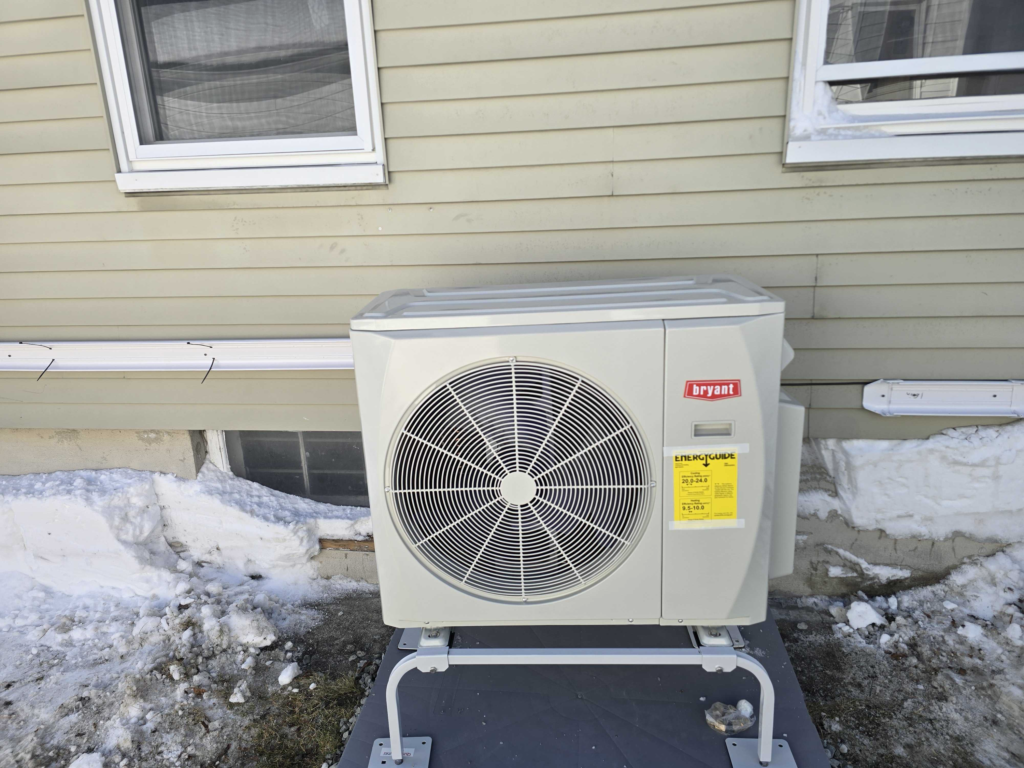An air conditioning unit should hum quietly in the background, providing cool relief without disturbance. When unusual sounds emerge, however, they often signal underlying issues that demand attention. Ac noises can range from benign to serious, and recognizing which ones to investigate can save homeowners from costly breakdowns. By understanding common noise types and their implications, individuals can make informed decisions about maintenance and repairs, ultimately extending the lifespan of their system.
Table of Contents
ToggleWhat ac noises indicate serious AC problems?
Ac noises that deviate from the normal operational hum, such as banging, squealing, or hissing, often point to mechanical or electrical failures within the unit. A buzzing sound may suggest loose wiring or a failing compressor relay, while a high-pitched squeal usually indicates worn belts or motor bearings. Ignoring these warning signs can lead to emergency failures, reduced cooling efficiency, or even safety hazards. Regular inspection of sound patterns enables early diagnosis, allowing for timely interventions that protect both comfort and budget.
Why Do AC Systems Make Unusual Noises?
Air conditioners consist of multiple moving parts, including compressors, fans, coils, and electrical components—that work together to cool indoor air. As mechanical systems age, components can loosen, wear, or misalign, producing atypical sounds. Variations in cooling loads, humidity levels, and refrigerant pressure can also alter noise signatures. Recognizing when fluctuations in volume or tone cross from normal operational variance into trouble signals is essential to preventive maintenance strategies.
When an AC operates within design parameters, it should produce only a gentle whoosh of airflow and a low-level hum from the compressor. Over time, however, every system experiences wear, and even routine cycles can exacerbate loose parts. Maintenance steps such as lubricating bearings, tightening fasteners, and verifying refrigerant charge will help maintain a quiet performance baseline.
Common AC Noises and Their Meanings
Unusual AC noises generally fall into six categories. Each carries distinct implications for system health:
Buzzing or Humming
A buzzing noise often arises from electrical issues. Loose wiring connections, failing capacitors, or a malfunctioning contactor can spark a vibrating hum. While a gentle hum is normal as the compressor runs, excessive buzzing should be treated as an electrical red flag.
Hissing
Hissing or bubbling typically indicates refrigerant leaks, whether at the line connections or within the evaporator coil. Reduced refrigerant impairs cooling capacity and can harm compressor components if allowed to persist.
Squealing or Screeching
High-pitched squeals are most often linked to worn fan belts or motor bearings. In ducted systems, a belt connecting the blower to the motor can stretch or crack, creating a shrill sound when spinning. Screeching may also signal high internal pressure in the compressor, necessitating an immediate shutdown.
Rattling or Clanking
Rattles and clangs stem from loose parts inside the outdoor condenser or air handler. Nuts, bolts, fan blades, or debris trapped in moving assemblies can shift with airflow, generating metallic knocks that intensify if left unresolved.
Clicking
A single click is acceptable when the thermostat signals the system on or off. However, repetitive clicking throughout the cooling cycle often signifies a failing relay, defective control board, or wiring problem that could eventually prevent the unit from starting.
Gurgling or Bubbling
Gurgling sounds may point to trapped condensate in the drain pan or line, while bubbling often accompanies refrigerant traveling through expansion valves. Although less urgent than grinding or banging, they still warrant inspection to prevent water damage or inefficiencies.
| Noise Type | Likely Cause | Recommended Action |
| Buzzing/Humming | Electrical fault (loose wiring, failing capacitor) | Schedule electrical inspection and tighten connections |
| Hissing/Bubbling | Refrigerant leak | Call for professional leak detection and refrigerant recharge |
| Squealing/Screeching | Worn belts, motor bearings, high compressor pressure | Replace belt or bearings; shut off unit until serviced |
| Rattling/Clanking | Loose components, debris in fan or condenser | Power down, clear debris, tighten fasteners |
| Clicking | Defective relay, control board issue | Test and replace relay or board as needed |
| Gurgling/Bubbling | Condensate line blockage, refrigerant flow irregularity | Clear drain line; inspect refrigerant system |
Midway through routine cooling seasons, homeowners in Massachusetts often seek reliable ac repair services in Massachusetts when noise symptoms first appear. Skilled technicians can isolate causes quickly, restoring quiet operation and preventing further damage.
How Unaddressed Noises Affect Your AC’s Performance?
Minor sounds may seem trivial, but they frequently herald component stress that can compound over time. For instance, a squealing belt not only creates noise but also reduces airflow and places abnormal loads on the blower motor. Left unattended, this imbalance accelerates wear on the compressor, fan motor, and electrical relays. Similarly, a small refrigerant leak may initially cause only a subtle hiss, often one of the early signs of an AC Refrigerant Leak, yet prolonged low charge leads to overheating, frozen coils, and total system failure.
By diagnosing and rectifying noise-related issues early, homeowners safeguard their AC’s energy efficiency. A well-maintained system consumes less electricity, maintaining comfortable indoor temperatures while minimizing utility bills. Preventive upkeep helps avoid emergency replacements and aligns with best practices in both residential ac repair and commercial ac repair scenarios.
When to Seek Professional AC Repair Services?
Some AC noises require immediate intervention. Loud banging or clanking from the compressor, for example, often indicates internal mechanical failure that risks permanent damage. High-pressure screeches might portend an overcharged refrigerant circuit—a potential safety hazard. In these cases, switch off the system and contact emergency ac repair specialists.
Other noises—like mild buzzing or occasional clicking—can be scheduled for standard maintenance visits. During routine appointments, technicians inspect electrical controls, measure refrigerant pressures, and lubricate moving parts, ensuring both residential ac repair and commercial ac repair clients receive comprehensive service.
An effective partnership with a reputable provider of air conditioning service in Massachusetts ensures that these inspections occur before peak cooling demand. Proactive scheduling prevents mid-summer breakdowns and keeps equipment warranties valid.
Preventive Maintenance to Keep Your AC Quiet
A systematic maintenance regimen is the most reliable defense against disruptive noises. Key preventive steps include:
- Inspecting and replacing air filters every 1–3 months to maintain airflow balance.
- Cleaning condenser coils seasonally to remove debris that can rattle or bind fan blades.
- Tightening electrical connections and inspecting relay contacts for wear.
- Lubricating motors, bearings, and belt-driven components to reduce friction and squeal.
- Verifying refrigerant charge levels and checking for leaks using electronic detectors.
These measures support both energy efficiency and system longevity. They also reduce the likelihood of emergency ac repair visits by catching mechanical problems at their earliest stages.
| Maintenance Task | Recommended Frequency | Primary Benefit |
| Air Filter Replacement | Every 1–3 months | Optimal airflow, reduced strain |
| Coil Cleaning (Evaporator & Condenser) | Annually | Improved heat transfer, prevents blockages |
| Electrical Connection Check | Biannually | Prevents shorts, buzzing, and arcing |
| Lubrication of Bearings & Motors | Annually | Eliminates squeals and motor strain |
| Refrigerant Level Inspection | Annually | Ensures proper cooling and avoids leaks |
Conclusion
Recognizing and addressing unusual ac noises is vital to maintaining a dependable, efficient cooling system. From subtle humming to alarming banging, every sound carries clues about component health and system integrity. Homeowners who partner with qualified service professionals can extend equipment life, optimize performance, and avoid the costs associated with major breakdowns.
Ac noises should never be dismissed as mere background interference. Instead, they represent an early-warning mechanism for mechanical and electrical distress. By combining routine maintenance with prompt repair of identified issues—whether through residential ac repair or commercial ac repair—occupants enjoy uninterrupted comfort and peace of mind.
Endless Energy provides comprehensive solutions for all air conditioning concerns, including emergency ac repair and preventive maintenance, ensuring that silence remains the hallmark of effective cooling.
For professional guidance or to schedule service, please Contact Us.
FAQs (Frequently Asked Questions)
What causes a loud banging noise in an AC unit?
A loud banging sound often indicates loose or broken components in the compressor or fan assembly. Over time, bolts and fasteners can loosen, or internal parts like the connecting rod may fracture. Turning off the system immediately and scheduling professional inspection prevents further damage.
Can a hissing sound damage the AC?
Yes. Hissing typically points to a refrigerant leak, which reduces cooling performance and can lead to compressor overload. Refrigerant leaks also pose environmental and health hazards. Prompt repair and recharge by licensed technicians restore efficiency and safety.
How can one differentiate normal operational sounds from problematic noises?
Normal sounds include a low hum of the compressor and a gentle whoosh of airflow at startup or shutdown. Problematic noises are continuous, loud, or high-pitched—such as buzzing, squealing, or repetitive clicks—and persist throughout cooling cycles.
Is emergency AC repair necessary for clicking sounds?
Persistent clicking can signal failing relays or a defective control board. While not always an immediate safety issue, ignoring repeated clicking risks complete system failure and leaves inhabitants without cooling. Timely service prevents emergency outages.
How often should a homeowner schedule an AC tune-up?
Most manufacturers and HVAC professionals recommend tune-ups at least once a year—preferably before summer. Biannual inspections, including checks of belts, bearings, electrical connections, and refrigerant levels, maintain peak performance and quiet operation.






